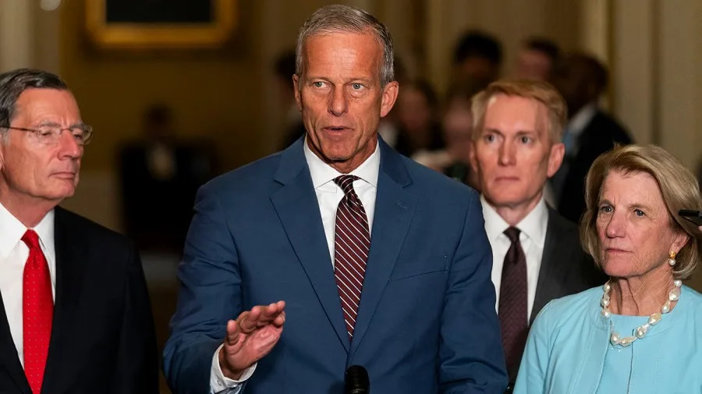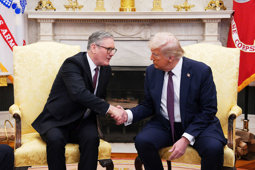
Senate GOP Removes AIDS Cuts from Trump Clawback Bill
Senate Republicans agree to spare $400M in AIDS relief, amending Trump’s rescission bill to win crucial votes for passage.
GOP Moves to Secure Support by Adjusting Spending Cuts
Senate Republicans have revised President Donald Trump’s multibillion-dollar rescission package, stripping out roughly $400 million in proposed cuts to a global AIDS and HIV prevention program in a last-minute bid to win over crucial GOP holdouts. The move reduces the total value of the clawbacks in the president’s bill to $9 billion and comes as Senate leaders work to corral enough support ahead of a tight legislative deadline.
Lawmakers announced the change after meeting with Office of Management and Budget Director Russ Vought, who confirmed that the Bush-era President’s Emergency Plan for AIDS Relief (PEPFAR) would be protected in the final bill. The original plan to cut the program had rattled some Senate Republicans, who warned both publicly and privately that their votes would be at risk if the funding remained on the chopping block.
Senate Majority Leader John Thune, R-S.D., explained that there was “a lot of interest among our members” in preserving the AIDS relief funding. He expressed optimism that the upper chamber’s action would encourage House Republicans to accept the change. “If lawmakers in the upper chamber could advance the bill, then House Republicans would be open to the modification,” Thune noted.
The Senate now faces a series of votes, with the first test expected Tuesday evening. Should the bill move forward, lawmakers will launch ten hours of debate before a final vote. Senate leadership can only afford to lose three Republican votes, making every concession critical to the bill’s fate.
Legislative Compromises and Ongoing Uncertainty
Additional amendments include an agreement to redirect about $10 million toward rural radio stations on reservations, addressing the concerns of Sen. Mike Rounds, R-S.D. Cuts initially targeting these stations will instead be reallocated to the Corporation for Public Broadcasting (CPB), which supports NPR and PBS. The fate of the bill still hinges on whether key GOP holdouts such as Sens. Susan Collins, R-Maine, and Lisa Murkowski, R-Alaska, are satisfied with the changes.
A senior administration official clarified that recent cuts to international aid were aimed at limited program adjustments, particularly targeting “LGBTQ education and capacity building—not core life-saving care.” The administration maintains it is working with global partners to ensure that other countries share a greater burden in supporting these programs.
Sen. Eric Schmitt, R-Mo., who has acted as a liaison between the White House and Senate on the package, said that while the administration backs the amendment, there is still uncertainty about whether there are enough votes to secure passage. “I'm not in the prediction business, but we're hopeful we'll move forward here,” Schmitt stated.
Russ Vought, representing the Office of Management and Budget, emphasized that the rescission bill remains “substantially the same package” despite the modifications. He also reminded lawmakers that they face a firm deadline: if the bill is not on the president’s desk by Friday at midnight, the White House will be forced to release its hold on the targeted funds and forgo the proposed cuts. “If we're outside of the 45-day window, we have to remove our hold on the money. So we will not implement the cuts if this vote doesn't go our way,” Vought explained.
With the legislative window narrowing, the final outcome will depend on whether these changes are enough to unite Senate Republicans and send the rescission package to President Trump’s desk before the deadline expires.






